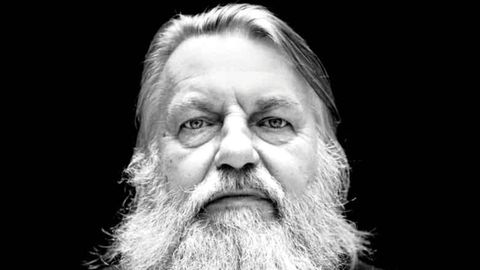When it comes to the development of British rock music, there’s very little about Robert Wyatt that sticks to the conventional narrative.
In fact, as Marcus O’Dair’s wonderful biography attests, it can be argued that Wyatt’s entire 69 years have been spent off-script. A love child whose father was absent until he was six. The boho-village childhood in Kent. The English psychedelia of Soft Machine, when everyone else was looking to American blues. The dizzying plurality of his solo career, embracing politico avant-jazz one moment, The Monkees the next. Wyatt, in his own words, continues to lead “an improvised life”.
There seems to be nothing calculated about any of this. Wyatt is instead painted as a law only unto himself, a man for whom high and low culture are often inseparable, his imagination aflame with all the possibilities on offer.
This has sometimes been his undoing. Early in his career he was too hung up on trying to be all things to all people, the wildman drummer/singer of a group that were otherwise impossibly straight-laced. One of O’Dair’s many intriguing observations is that following the drunken four-storey fall that rendered Wyatt paraplegic in 1973, the musician’s career choices actually sharpened. No longer able to drum, tour or play the role of boozy bozo, to him it was “truly liberating”. O’Dair conveys his admiration for Wyatt without ever resorting to hagiography. His subject is shown to be complex and – certainly in his Soft Machine days – difficult.
Yet what ultimately emerges is a man of warmth and compassion, adored by many, but whose self-admonishment often borders on the tragic. Prone to bouts of depression, Wyatt had attempted suicide twice before he reached 30. And his unwanted exit from Soft Machine – squeezed out of his own group in “a jazz-rock coup d’état” – still gives him nightmares, over 40 years on. As his wife Alfreda Benge puts it, Wyatt has always been missing one layer of skin.
Due attention is paid here to the luminous beauty of Wyatt’s recorded output too, either with the Softs, Matching Mole or solo. But special mention goes to that remarkable voice, a tremulous thing of such vulnerability that his great friend Brian Eno likened it to “a poor innocent cast into a complicated world”. You could, at a stretch, apply that to Wyatt himself.


